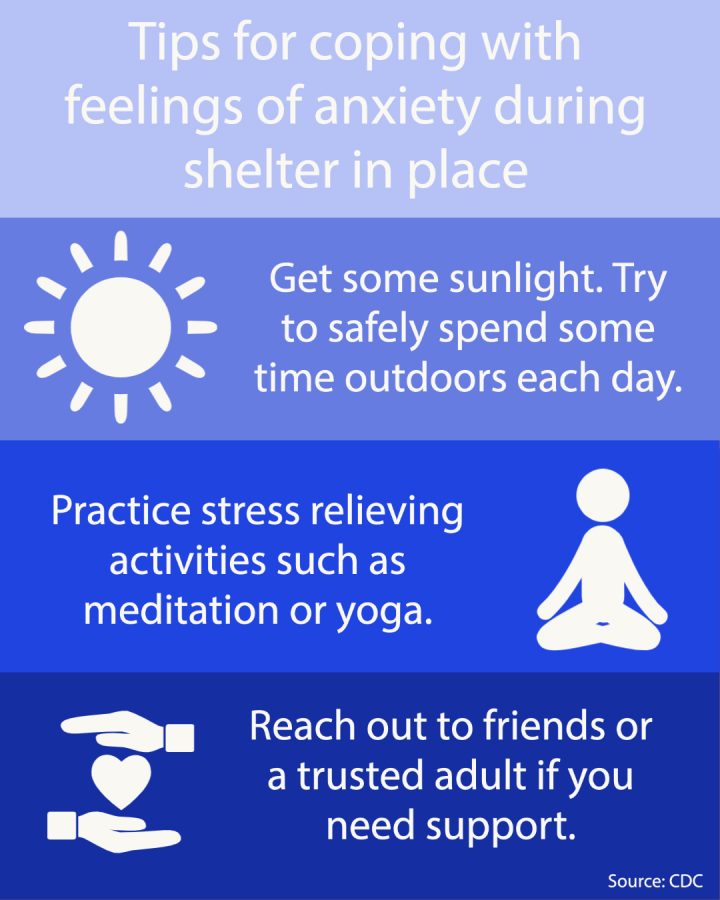Depression, anxiety increase due to COVID-19
Loneliness, Zoom fatigue and an underwhelming holiday season make maintaining mental health difficult
December 15, 2020
WEB EXCLUSIVE The prospect of a holiday season spent without freely visiting family and friends due to the continuing COVID-19 pandemic is causing depression and anxiety in some teens while worsening preexisting mental illness in others.
Many families saw the return of in-person learning as a potential solution to loneliness and isolation, but for students like senior Nina Sanchez, on-campus classes have not done that.
“Since COVID began my mental health has spiraled down a bit,” Sanchez said. “I hated being alone and cooped up, especially when it was summer. I’m still suffering from a lot of anxiety and depression even now that I’m back in school.”
The rate of mental illness in teenagers has increased significantly as a result of the COVID-19 pandemic, according to a study published in October in the United States National Library of Medicine.
“Therapists are very busy right now,” Dr. Ariel Trost, who practices psychiatry, said. “It’s really important to support each other, so if you see a friend or family member who’s struggling with depression of any kind, making plans with them or reaching out can be very helpful.”
The holiday season is often an opportunity to see friends or family members, but the ongoing pandemic has forced some to modify their plans, which teens like sophomore Sophia Davis say is an additional letdown in an already tough year.
“I ended up not going to LA and staying in SF, and although it wasn’t a typical Thanksgiving it was still fun despite not being able to see my family,” Davis said. “It’s sad that I have nothing to look forward to in the holiday season this year, I expect to stay home again for Christmas.”
Approximately 61% of Americans reported modifying their Thanksgiving plans in some way because of the COVID-19 pandemic, according to an Axios-Ipsos poll.
“This year, I had a Thanksgiving lunch instead of dinner so that I could celebrate outside while being socially distanced from my cousins,” junior Bridget Mills said. “My mental health has been impacted since COVID began because after a day of online school, I notice that I’m a lot more tired and less motivated than I am after a day of in-person school.”
Feelings of depression caused by “Zoom fatigue,” a phenomenon associated with the overuse of virtual platforms of communication, can be debilitating, but also eased, according to Trost.
“Having a consistent schedule, where you’re taking care of yourself, getting out of bed and trying to get outside every day can be really helpful in managing your mood,” Trost said. “Maybe try to take your dog for a walk or go on a hike with a friend. Schedule social time and do that safely by wearing a mask and meeting outside or virtually.”
Recent school presentations have focused on mental health and well being, but some students are calling for continued and increased acknowledgment of this issue as the holiday season could worsen its impact.
“I’m happy to talk about mental health openly,” Sanchez said. “I believe that it is an extremely important topic.”










